
Carla
Garapedian deserves to be commended for being a risk taker and
flirting with controversial subject matter to make an international
difference with her humanitarian documentaries exposing gripping
political and social issues. Having
worked as a BBC anchor and NBC correspondent,
the director has brought public awareness of the despicable
violence advocated by governments as well as uncovering devastating
issues that have burdened and victimized the innocent citizens of
many poverty stricken countries with films like LIFTING THE VEIL,
DYING FOR THE PRESIDENT and CHILDREN OF THE SECRET STATE.
Returning
to her deep roots to reflect on a more personal issue, Garapedian
steers her efforts to remind and enlighten the world of the almost
forgotten and unrecognized atrocities that were committed during the
1915 Armenian Genocide, as well as illustrating the history of
modern-day Genocide, in her latest unique and compelling
documentary, SCREAMERS.
SCREAMERS
unites Garapedian with the influential and popular rock band System
of a Down whose Armenian-descendant band members have continuously
and actively exercised the power of their music to bring
international awareness to old and new genocide.
Following the band on tour, the film alternates between
performance footage, testimonials on the tour bus and their peaceful
political pleas seeking acknowledgment and acceptance of the
Armenian Genocide.

Their
music is also used strategically as a backdrop while exposing the
Armenian genocide with haunting and disturbing historical footage of
heinous acts and integrating it with current accounts from
professors, scholars government officials and Genocide survivors
including the lead singer’s grandfather who’s also a survivor of the
Armenian Genocide. The film’s
main focus is on denial and future prevention of genocide otherwise
known as “the deliberate and systematic extermination of a
national, racial or cultural group.”
Taking
an honest look at the evidence, the film questions how the witness
of such unfathomable acts of barbaric violence wreaked upon the
entire Armenian population living in eastern Turkey in 1915 can
still be denied by the Turkish government?
Where do you think Hitler got his “brilliant” idea
from?? The denial signifies
the indifference and ulterior motives of powerful governments whose
inactions will result in the recurrence of other genocides to come.
SCREAMERS’ blatant intention is to question the world’s impartiality
and reiterate that without acceptance of the past, history will
continue to repeat itself and condone continuous atrocities of this
magnitude to reoccur.
I
had the great privilege of interviewing the inspirational role model
who’s continued altruistic work along with System of a Down’s
efforts will undoubtedly make a difference someday and help them
achieve their ultimate goals. See
what Carla Garapedian had to say about this deeply personal subject
matter, teaming up with System of a Down and the necessity to ruffle
feathers in order to get attention and bring an end to senseless
repetitious monstrosities.
Carla
Garapedian

What you are doing with Screamers is very admirable.
Can you talk about the path that led you to make this film?
It
was an interesting path. I was based in Britain since 1979.
I was born in Los Angeles and grew up in the Armenian
community with both sets of grandparents who came as a result of the
massacre so I grew up as so many Armenians did in America with a
strong sense of who I was and the genocide and it not being
recognized by the Turkish government and then our own government
corroding that denial. I
grew up with that but I never really thought I would make a film or
do anything about it for a couple of reasons.
so many other people have done good films and I didn’t see
how I could add any value.
I
worked with a filmmaker named J. Michael Hagopian on a couple of his
films and learned some of the difficulties of working with the
material and the photographs and the documentary material.
So I had a sense of what he went through to make these films.
What changed the whole equation was System of a Down.
I was visiting my family from Britain in 2004 and I was asked
by Michael Hagopian and the Armenian film foundation to sit at a
table at the one of the System of a Down’s concerts. This was the
2004 Greek theatre concert.
Had you known of them before this invite?
I
was aware of this popular Armenian band but I didn’t know anything
about their music and I was in Britain so I wasn’t following
anything. They
were just beginning to get national mainstream – Newsweek was
covering them and it was more than just music press.
They were becoming bigger than that.
So I knew about them but I didn’t know a lot about them.
They invited various Human Rights organizations to sit
outside at that Greek theatre concert and give pamphlets out to
their fans about various human rights issues and so I was there with
the Armenian film organization with little pamphlets.
The
interesting thing about that event was that a lot of fans came over
at the table and when I was giving them the brochure they already
knew about the Armenian genocide.
That really shocked me. These
were not Armenians. They
knew about the Armenian genocide because of the band and they also
knew about the other genocides because of the band.
The band through their lyrics and the work they had done over
the years raised the profile on awareness of all genocides.
I found that really impressive and it meant that the message
was getting out there in a way that hadn’t happened before.
Instead of it coming from the politicians and waiting for
legislation to be passed and people listening to the Armenian
community- here was this very powerful medium of popular culture of
music being the way of learning not just what happened to us but
what happened subsequently to other people.
So
that changed the equation and at the same time because I’m based in
Europe, the BBC was very interested in Turkey’s proposed membership
of the European Union. The
Armenian genocide had come up in that debate because various
European countries wanted Turkey to just allow it to be discussed
and it had become a political football basically.
So here’s something that happened almost a 100 years ago and
suddenly it’s part of the current politics in Europe.
There was also Turkey actively prosecuting people who are
trying to talk about the genocide or at least to understand the
history better. These
are Turkish citizens and not necessarily Armenians.
Orhan
Pamuk is not Armenian and he’s been prosecuted.
Ragip Zarakolu is a publisher who’s wife went to prison for
two years in Turkey because she published a book about the Armenian
genocide.] Hrant Dink*
who is an Armenian editor in Istanbul, was prosecuted for insulting
Turkey’s honor (and sent to jail for 6 months).
He didn’t even mention the genocide.
All that was going on and the band becoming this worldwide
phenomenon and being talked about and the last thing was here in
America – with a new legislation coming in about the Armenian
genocide and another genocide happening in Darfur.
The same sorts of problems that Armenians had with people
recognizing what was going on and actually doing something about it
was the same situation with Darfur.
That was the thesis of the film.
So it was important for the band to send a message not just
about the Armenian genocide and that was something I wanted to do –
to wide it out and show the linkage and pattern of it repeating.
*
Ironically, Hrant Dink was murdered, shot to death on January 19,
2007, just 3 days after this interview took place.
He was leaving his newspaper office.

What did you think about their music?
Well
initially I wasn’t familiar at all and when I was at the concert
outside and popped into it, I heard some of it and was really taken
by the fans. The fans
knew the lyrics and the whole experience is very tribal.
I had never been to a concert like that and I’m in my 40’s so
I grew up with The Beatles and Elton John.
I wasn’t into Deep Purple and Black Sabbath [laughing], so it
was a really new experience. Then
I went home and the management company sent me Toxicity.
When I first listened to it I didn’t know what to make of it
because my ear wasn’t attuned to it.
Then
I slowly started to hear the Armenian sound to it and I heard this
beautiful voice of Serj Tankian and then I started to read the
lyrics. That made me go
back to the music and listen to it with a different ear.
It became this organic process of one moment I didn’t get it
at all and the next moment I totally bought into it and thought it
was amazing. It’s funny
because we’ve had people from all different age groups come in and
see the film and I always feel a little sorry for the older people
who come in and don’t know what they are in for. It’s surprising how
many people come up to me after and say that their music is
interesting.
Their music does carry a powerful message.
In
a way, I would have worked with them no matter what kind of music
the band had. Even if it
was Barry Manilow type of music I would have worked with them
because they are all grandchildren of survivors and they all have
this message they are getting out.
It just so happens that this music is about anger, rage and
passion and that’s what is needed to rattle the cages now and wake
people up and say ‘How can we stand by and watch another genocide
unfold?” How is it
that we’ve had from the Armenian genocide to the Holocaust to
Cambodia, Bosnia, Rwanda, even the Kurds in Iraq?
People at the time were trying to say “we have to do
something about this” and the government at the time said
“no.”
One
interesting thing when I was reading Samantha Powers’ book which is
written in a very engaging way, is she talks about Rafael Lemkin who
claimed the word [genocide], in getting into the individuals who
have made a difference in history like Henry Morgenthau, she kind of
chronicles the Screamers in history who’ve tried to make a
difference. She had a
whole chapter in the Holocaust and I didn’t know this but during the
holocaust there were people who tried to raise the alarm and tell
people in Washington and the Roosevelt government what was going on.
People
were saying “look, we know we are fighting a war and we cannot
endanger the war effort but there are things that can be done to
save some of these people.”
The decision was made not to do anything, and the same in
Britain. So somehow we
have this idea of ‘if only we knew’ but I think when you look at the
pattern of what has happened since then, I honestly believe it is
not at all clear that we would have acted to save the Jews if we had
known what was going on. There’s
indications that we DID know and we had options and we did NOT act.
That’s really frightening when you think about it.
Serj
[Tankian] pointed this out to me in an interview but think about if
we hadn’t been at war with Hitler, if he hadn’t been trying to take
over Europe and be an imperialist and if he had been slowly
persecuting the Jews over a period of time and it was slow and
quiet. The same thing
would have happened as it did with Cambodia.
Things would have trickled out and people would have just
said that terrible things are going on.
Would we really have intervened with Germany, a country we
had strong economic relationship with?
Certainly Britain had a strong alliance with Germany and
didn’t want to go to war with them.
It makes you think hypothetically-really do we care enough to
act?
As
in with the Armenian genocide there was a relief campaign and the
Americans did help but the American government didn’t help in the
way that it could. It
stayed neutral the entire time.
So this is the pattern and I hope this film will try to wake
people up and connect the dots.
I’m not giving any explanations on specifically what we
should do, I’m only asking you to see the hypocrisy in our behavior.
We say never again but we don’t mean it.
How did the title Screamers come about?
That
came from me and Samantha Powers. She
actually coined the word Screamers. She
uses it in relation to people who stand up and raise the alarm while
genocide is happening. She
calls Henry Morgenthau a screamer. In
each genocide she looks at in her book, she identifies a person or
group of people who are definitely trying to do something.
So although she doesn’t include Darfur, I think she would
have called George Clooney a screamer now because he’s going around
and lending his celebrity to this issue and to get people to listen.
If
governments aren’t prepared to do anything about it because they
don’t want to get involved, that means they aren’t going to talk
about it. That means if
politicians aren’t unfortunately talking about it, then news
reporters aren’t going to cover it unless they have their cameras
there and are filming while the genocide is happening and that
rarely happens. So you
have pictures few and far between trickling out about Darfur.
It’s not a war so you don’t have the politicians talking, you
don’t have the pictures coming out – who is going to say we’ve got
to stop this? Unfortunately
it comes down to people like artists, actors, filmmakers,
journalists, and student protesters across campuses.
It takes these people to rattle the cages and say we refuse
to put up with this. That’s
what it’s come down to.

So what you are saying is that although so many people know what’s going
on, the governments aren’t doing anything about stopping genocides.
That’s
right. Even during the
Rwandan genocide with President Clinton [in presidency], we’ve got
Sally Brucker who’s with an interest group called Africa Now, said
that the State department was passing around memos saying “For
God’s sakes don’t call it a genocide because then we’re going to
have to do something about it.”
Later you have Clinton apologizing to the Rwandans in 1998
when it’s all over saying “Oh, if only we’d known the full
depth of the horror.”
Well
he did know the depth of the full horror and didn’t want to do
anything about it. It’s
a valid position to say as a government
“we have other priorities before intervening to stop
genocide.” I think
that’s a debate to be had but what I think is wrong is to pretend
and to be hypocritical and to pretend we are willing to do something
and say never again. Better
to have a debate and be open and honest and say “look it’s not
out priority to help these people” than to be lying about it.
Also
you have the president of Iran denying a holocaust that’s happened
recently. Just the other
day I read a Cambodian who was number two to Pol Pot – this man is
denying that the Cambodian genocide happened.
He said that those pictures of all those skulls were just
faked. Then you have the
Turkish government continuing to deny the genocide and our
government appeasing that. What
kind of message does that send?
And poor Orhan Pamuk, who put himself on the line and his
head on the block, he goes back to Turkey in fear because he’s hated
there. He’s seen to be a
trader.
What
is our government doing not supporting him in being truthful?
I think for me it’s been an education because I thought I
knew about this issue growing up with it but I really didn’t know
the depth of the hypocrisy. There’s nothing like being in congress
and seeing documents sent from the state department and the
president saying do not vote to recognize the Armenian genocide.
To see those documents is really chilling.
Although it was never on your agenda to make this kind of film how long
did it take to bring this movie to fruition?
The
idea first entered my mind at their concert in 2004 and then it took
a while to get my tapes through to Serj.
He was my first point of contact.
Serj’s producer saw the tapes and said this is a filmmaker
Serj may want to work with. So
I finally talked to Serj in August 2004 and then I went off to make
a film in Africa for a few months.
April of 2005 we met again and I had had some time to get
financial support from the BBC, to think through the kind of film I
wanted to make.
Serj
was in London for the beginning of their European tour and said that
I may be able to get access to some concerts.
Once I heard that it meant that I could make a film actually
showing them performing and have the music be integrated in a way
that I hadn’t imagined before. Instead
of talking and interviewing them, it would be about integrating
their music. That’s the
first time they let anyone do that.
So that changed the equation.
Between April and June we worked out the details and I
started filming them in June of 2005.
I finished in July of 2006.
Talk about shooting in some of the different cities with them on tour.
I
was on the road with them some of the time in Europe and the U.S.
We did a rally together in Chicago and I was also at the
Detroit concert. There
was originally a sequence that included Serj’s family in Detroit.
His great grandfather went to work in a Ford factory before
the genocide as a lot of Armenians did and I didn’t know this, but
that’s why there is such an old Armenian community in the Detroit
area. A lot of Armenians
came to work in the ford factory and sent money back to their
families. Serj’s great
grandfather did that but when things went bad in the run up to the
genocide he went back and was promptly killed and that was right
before 1915. Serj’s
grandfather as a child was then put on the deportation march and
miraculously survived. He
was actually pushed all the way to the Syrian desert and not many
people survived that.

Where would you say is System of a Down’s biggest fan base?
Britain,
Germany, Austria, Japan, Italy, Portugal, Sweden and Norway.
I think the biggest fan bases are in Britain and Germany and
I met some of their fans who are all really into the music and
message as well. The
European fans are very political.
They have elements of anarchic sound in their music which
relates to punk and is very popular over there.
You have a very impressive resume. How
did you go from anchoring BBC to directing?
I’ve
been very lucky because I’ve done both things from the beginning.
I started working in 1987 in British television as a
researcher. I
worked my way up to being a producer, director and filming abroad –
they like you to be multi skilled, able to report and direct and
produce. So I was always
doing a little of everything from the beginning.
I made documentaries initially in 1988 to 1994 period.
I did six years of producing and directing.
Then I took a break by being an anchor.
It’s quite a challenge in some ways but it’s a completely
different kind of work.
I
stopped at BBC world in 1998 to write but I wasn’t sure what I
wanted to do. Then I was
offered the chance to go to Chechnya to work for a completely
different company that specialized in secret filming with small
cameras. That’s when I
made a film about Chechnya on human rights abuses there and then
went to Afghanistan and made a film there called Lifting The Veil
and then North Korea. So
this company gave me a new lease on life in a new way of making
films. As an Armenian to
be able to tell the story of some other people’s injustice, was
gratifying in a way. Ours
can’t be solved or at least I didn’t think it could be solved, but I
can maybe do something about telling somebody else’s story.
I was very fortunate to have the opportunity to make these
films.
What are you planning next?
Right
now we’re still in the phase of releasing the film nationally.
I’m doing a lot of grassroots community level work letting
people know in various communities the film is coming out, to try to
get people to talk about the issues and activate the stands.
Then we will be showing the film internationally.
There’s also an educational aspect to the film so when it
eventually comes out on DVD, it will be available to schools.
What had been the general reaction to your film thus far?
We
all think that our genocide is so particular in the way it unfolded
but…for Armenians to see the pattern of genocide has been
validating. People have been
glad that I’m telling the story in this way and widened it out to
other genocides as well. Then
people talk about the music and on the whole they like it even
though it hits you in the face. At
the AFI film festival there were a lot of people who had questions
about mixing up those pictures with music and the decision to do
that. Showing dead people and
mixing it with that kind of music is a hard line.
I tried to do it without offending people, be respectful but
at the same time be angry.
What is your ultimate goal you wish to achieve?
I
think the ultimate goal is for people to feel they have some power
over this issue. To feel
empowered after seeing this film.
Not only feel angry but feel that this is something we can
change. I do believe
that our policy and politicians are influenced by what they think we
feel. If the political
will isn’t there they won’t do anything about it. I think what I’m
trying to do in the film is to get people to connect to these people
who have been the victims of genocide and to feel that it’s about
all of us.
So
it’s not just about the people in Africa or Asia.
At the time when the Armenian genocide was happening, people
didn’t connect at an emotional level or at a human level.
I think that if we can get people to feel something even if
it’s anger, then you solve the problem of disconnection and then the
issue becomes on how we can solve this.
I think we’ve switched off and we think that this is not
something we can do anything about – that it’s really an optional
issue if we can stop genocide. Maybe
we will, maybe we won’t.
When
did that happen? I grew
up thinking that all genocide are to be stopped.
Never again, never again. I want people to question if that’s
what we’ve been doing – to allow genocides to happen.
Did I have a say in that?
Did I vote for that? When
did that debate happen? Who
decided that for me? If
there is even a hint of what I’ve said in any of that- even if they
feel a little indignant or sad,
then I know I will have accomplished my job.
The next time it comes up with Darfur, hopefully people will
want to do something about it.

Is there anyone in Hollywood that you would like to work with or whom you
admire?
That’s
a really interesting question. A
friend of mine bumped into Tom Hanks the other day and talked to him
about seeing the film. I
got really excited about it because Tom Hanks has that type of face
filled with sincerity and humanity.
In all the roles that he plays, you feel something for the
person he’s playing. He
has helped people connect to the stories he has brought to life in
his films. Then you have
George Clooney who’s interested.
These
people have so much power and the people who use it for good are the
people I would like to work with in the future not because they are
powerful but because their hearts are in the right place.
We need people like that who attach their faces to the
stories that need to be told whether fiction or non-fiction.
People who have a humanitarian interest are the people I like
to join forces with. They
are the people who will weather the storm of making the films which
is hard work. It’s a
struggle so you need people to believe in the message and stay with
you to make sure the message gets out there.
What about Bono?
Yeah!
Look at what Bono is doing.
It’s incredible what he’s done.
Even though our politicians aren’t doing this, there are
people who are willing to step up.
They are screamers in their own way.
They are willing to put their money where their mouth is and
use their celebrity status to attach themselves to something that
may be unpopular. What
can be more unpleasant than genocide?
Click
here to check out the official SCREAMERS website with more info
about the film and screenings



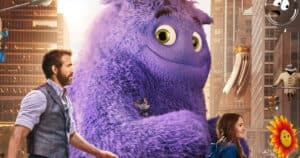



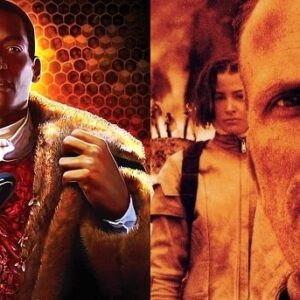

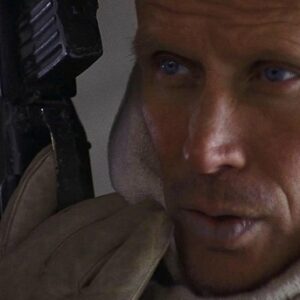

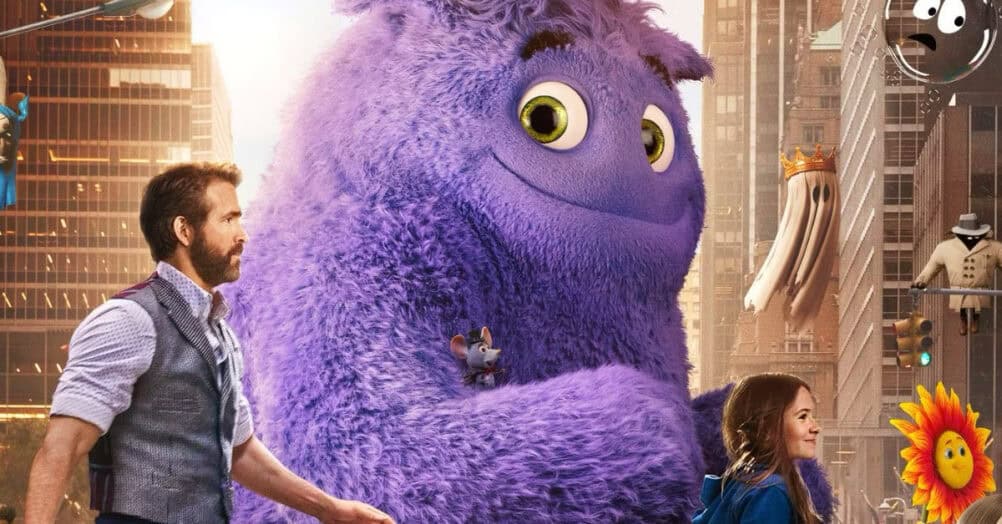

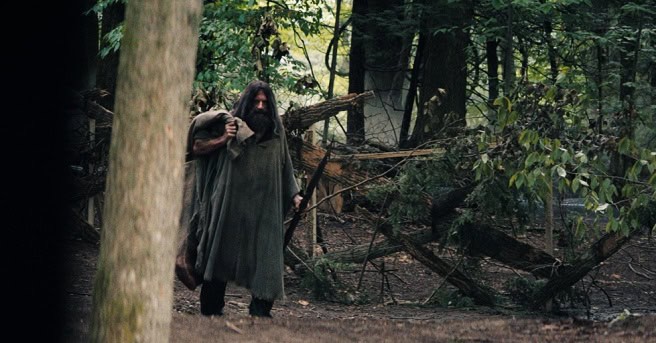
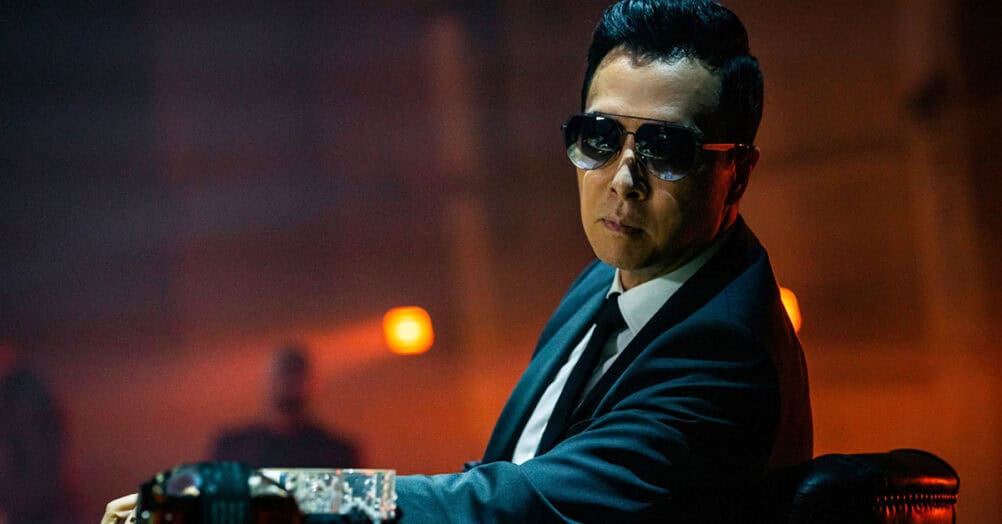
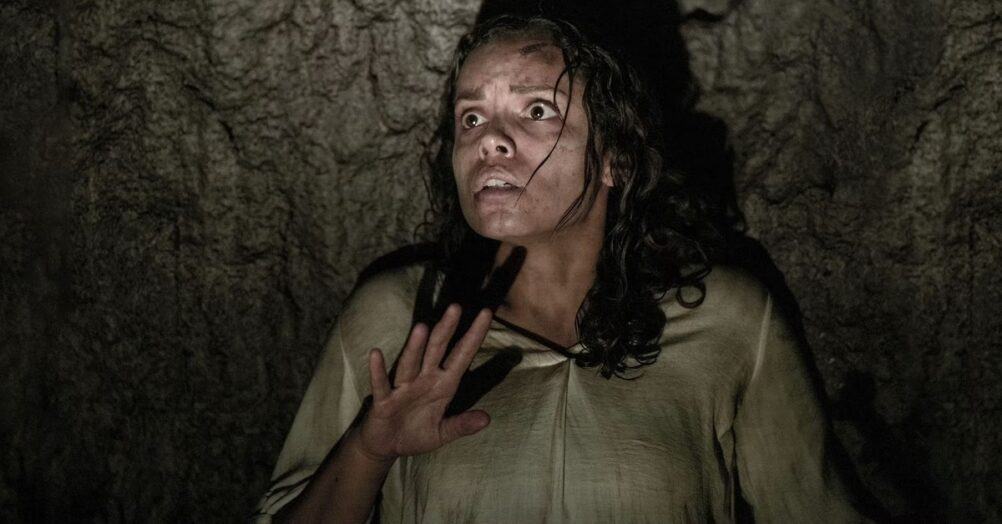

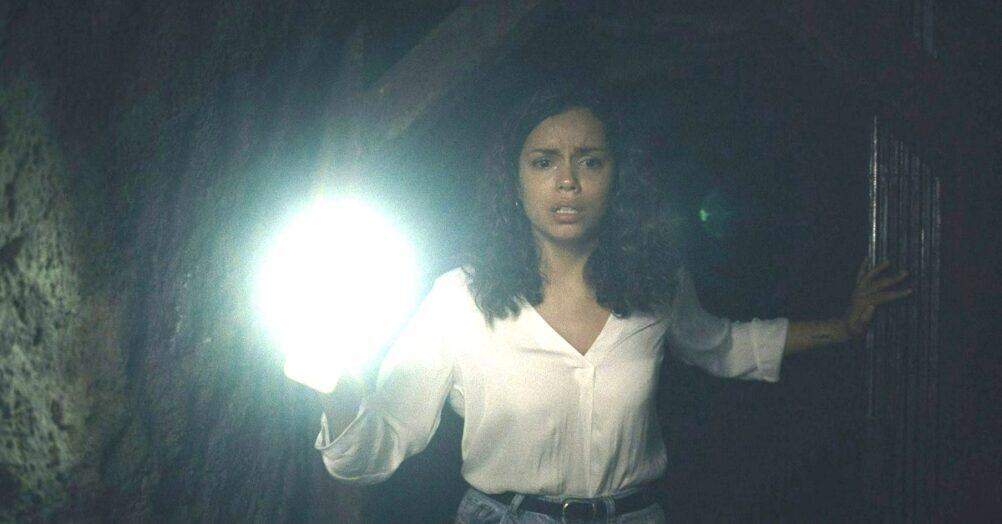


Follow the JOBLO MOVIE NETWORK
Follow us on YOUTUBE
Follow ARROW IN THE HEAD
Follow AITH on YOUTUBE